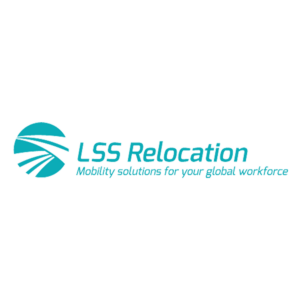The Anti-Work Paradox
11 March 2024

Story by
Dr Naema Pasha Author and Speaker
Author and speaker Dr Naeema Pasha asks whether rejecting hustle can improve work for everyone.
In the past year, I have interviewed many people who were dissatisfied with a work culture that demands long hours, high stress, and constant productivity. Many voiced that they feel that the promise (and even the gain) of success and rewards is not worth the toll on their health and happiness – a few voicing that they just wanted to give it up and live a simpler life. It reminded me of a vintage BBC TV comedy series made in the 1970s called The Good Life where a couple gave up the corporate race to live sustainably, and the comedy rested on them comparing notes to the couple next door that stayed in the corporate rat race. The interviews reflected an idea that seems to be gaining ground again that more workers are now being drawn to the idea of ‘anti-work’. Numerous new studies show this is a movement, or at least a drive, that challenges the necessity and value of most modern jobs. Studies show that people are planning to quit their careers and live more simply and freely – and it might fuelled by the lockdown experience. It may also be pushed by younger generations in the workplace who don’t seem to buy into the corporate speak of give your company a 110% and hustle harder for success.
According to generational studies, Gen Z, the youngest cohort in the workforce, is more sceptical of the hustle culture that millennials embraced. They want a better balance between work and life, and they are not willing to sacrifice their wellbeing for their employers. They have seen the effects of burnout and many are rejecting it. Many are saying no to exploitative and toxic work environments. Ali Orr, Director of Student Development at Kingston, argues: “Organisations will increasingly need to communicate how their culture and values align with this purpose journey.” He also notes a change in younger generations. Orr argues that he has seen a definite shift in recent years in what students are seeking from potential employers: “there is a greater priority being attached to work-life balance, and to company culture and values. That’s hardly surprising when this generation has lived through a pandemic and cost of living crisis before they’ve even graduated, and the global challenges that they are inheriting.”
A movement for all generations
Has the impact of over consumption, not just on goods, but in jobs, led to fuelling the anti-work thinking, not just for GenZ but for all generations? Where work doesn’t just pay the bills, but enriches everyone’s lives. I would argue that leaders have contributed to developing an anti-work movement themselves with strategies built on words like; ‘we are a mission, values, purpose, organisation where social impact takes centre stage’.
At the heart of the anti-work movement lies a critique of this ‘hustle culture’ that has permeated our professional lives. We have the contradiction of wellness at work but still feel the pressure to wear busy-ness as a badge of honour, sacrificing wellbeing for the elusive promise of success. The phrase ‘anti-work’ might conjure images of slackers and freeloaders, but delve deeper and you’ll see how younger generation disillusioned feel with a system that feels rigged against them. However hard they save on avocado toast and Netflix, buying a house on their salary a far away dream. Their demands of more balanced and good work, might hold the key to unlocking a future.
Professor Nick Kemsley Director at N Kemsley Consulting Ltd , and HR Centre, Henley Business School has said the link between how people feel about work, and indeed anti-work, raises a valid question around the “product” of organisations. Kemsley suggests that the reality for many is that the products, services, customer and employees are somewhere in the middle of the value chain; and that the real product driving everything is a return to institutional shareholders above everything. This positions employees as ‘costs to be minimised’ in some organisations. This has been reinforced by the recent cost of living crisis exposing lack of wage inflation and the scaling back of customer contact mechanisms post pandemic. A valid question, says Kemsley “What does your company do of value” is being asked more and more by the current and future talent generation. What they hear back is now, often rightly, seen as window dressing. Indeed, Orr suggests that his work with students is shifting now to work that is enabling students to cultivate their own purpose and identify how they can find it through work.
What is a good life?
Workers are absorbing such words not as banal statements on a reception wall, but for real, prompting a re-evaluation of what truly constitutes a ‘good life’. Richard Freeman CEO of Always Possible suggests that the future of work is not a divide between ‘life’ and ‘labour’. Freeman adds that workspaces need to be engineered as centres of creativity and capability, not mechanical tasks. “Technology’s single duty is to make it easier to be human, so that the bits only humans can do are only ‘work’ in the sense that you are under contract,” he says.
The work-life balance
All of my interviews sparked conversations about work-life balance. Just the critique of anti-work in work culture, has a potential to significantly shift our attitudes towards work and burnout. Many individuals I spoke with discussed and re-evaluated what constitutes a fulfilling life beyond their job title. Many highlighted the mental and physical toll of burnout. In some ways the anti-work movement encourages open discussions about mental health in the workplace, potentially reducing stigma and normalizing taking breaks and seeking help. Anti-work started with no-work and now has also moulded into an idea of less ‘over-work’, which might seem like a recipe for disaster for many organisations, but consider the unintended consequences of over-work. Companies, facing a talent exodus, are being forced to re-evaluate their offerings. Suddenly, flexible work arrangements, competitive wages, and a genuine focus on employee wellbeing aren’t just perks; they’re survival tactics on talent and retention for the best people.
This creates a ripple effect, pushing the entire market towards better working conditions for everyone. Kemsley adds that the basic issue is that talent is now looking at organisations in an entirely different way than organisations are looking at talent: “most of our career and talent assumptions have their roots in the period 1950-1979. Your career is ‘the time you work for us’ is the best example of this mismatch”. From my interviews I would say that the impact goes beyond individual workplaces, a view echoed by Jane Barrett, a coach, founder of The Career Farm and author ‘Taking Charge Of Your Career’: “I’ve more people at a younger age embracing a flexible freelance lifestyle or micro-entrepreneurship. Covid has seen a rise in ‘remote first’ jobs and highly skilled and experienced people can demand this.”
Automation and AI arrives
Automation and AI is of course a looming challenge, and ensuring everyone benefits from a potential shift in work structures will require careful planning and social safety nets. Can companies truly offer purpose in a world increasingly driven by automation and efficiency? Can the traditional notion of a “job” adapt to the aspirations of a generation raised on instant gratification and side hustles? And has transparency of what work is like on the inside enabled the shift? Derek Moseley, Director of Sales and Marketing – Corporate Development at Henley Business School says yes, and that “in this data-rich world of Glassdoor, company reviews, news articles and multiple other data points, it becomes more difficult for organisations to hide their culture behind glossy corporate veneer. In relation to AI and impact on vulnerable groups, ethical organisations may do well to consider using the productivity/cost savings that they bring to focus on ‘ethical’ projects rather than pocket the money.”
The purpose of work
The anti-work movement shines a spotlight on the very purpose of work in our society. Is it merely a means to an end a hamster wheel of production and consumption? Or can it be something more, a source of meaning, fulfilment, and contribution to a larger purpose? And how can we ensure that this evolution towards a more fulfilling work culture doesn’t leave vulnerable populations behind – and we retain equity and diversity? Freeman adds: “the reality, we’re more focused on making, inventing, selling, servicing, thinking, designing, transporting and repairing as enjoyable crafts. The challenge is to construct a work culture that enriches – and that especially includes trade, care, and production-line roles. This isn’t utopia anymore. It’s a strategic inevitability – for a future where work and technology serves individuals and communities, not the other way around.”
It’s important to note that there are diverse perspectives within the anti-work movement itself, and its long-term impact remains to be seen. And indeed diversity itself should be accounted for – as with the BBC series, The Good Life, pushing back against traditional corporate work was easier for people who experienced it and came from privileged backgrounds. Likewise saying all GenZers can afford to pull back from over-work isn’t true – not least because of financial hardships. Groups that have gained confidence to say this type of work isn’t for me, may only be a choice for some, as social mobility, race and gender inequity make this an impossible ideal for many.
Radical change or smaller improvements?
However, the influence on social discourse of anti-work is immense and its potential to challenge harmful workplace norms cannot be ignored. Whether it brings about radical change or incremental improvements, the anti-work movement is prompting a much-needed re-evaluation of our attitudes towards work and the role it plays in our lives. I feel the questions on anti-work demand exploration and by questioning the status quo, the movement opens up a conversation about redesigning work itself, moving away from work-tasks and towards building careers through jobs that tap into individual talents and passions. But the anti-work movement, despite its provocative name, might just be the push we need to finally address the deep disconnects between work and careers and the lives we want to lead.
—
Useful Links:
Derek Moseley: https://www.linkedin.com/in/derekmoseley
Nick Kemsley: https://www.linkedin.com/in/professor-nick-kemsley-9a61841/
Richard Freeman: https://www.linkedin.com/in/rpfreeman/
Ali Orr: https://www.linkedin.com/in/aliorr/
Jane Barrett: https://www.linkedin.com/in/janelouisebarrett/







